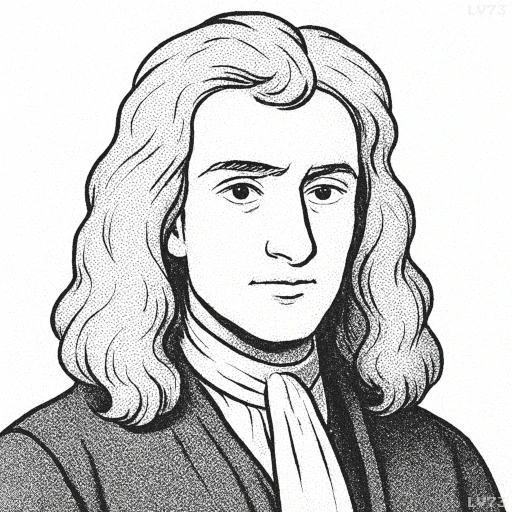“If I have seen further than others, it is by standing upon the shoulders of giants.”

- January 4, 1643 – March 31, 1727
- Born in England (UK)
- Natural philosopher, mathematician, physicist, astronomer, theologian
table of contents
Quote
“If I have seen further than others, it is by standing upon the shoulders of giants.”
Explanation
In this famous quote, Isaac Newton humbly acknowledges the contributions of those who came before him, attributing his own achievements to the groundwork laid by earlier scholars and thinkers. The phrase “standing on the shoulders of giants” suggests that scientific progress is not made in isolation but is built upon the knowledge and discoveries of past generations. Newton recognized that his breakthroughs, such as the laws of motion and universal gravitation, were possible only because he was able to build upon the ideas of giants like Galileo, Kepler, and Descartes, whose work in physics, astronomy, and mathematics laid the foundation for his own.
Historically, this statement reflects the scientific revolution of the 17th century, a period during which the methodology of science shifted toward empirical observation, mathematical modeling, and the search for universal principles. Newton’s humility in recognizing the intellectual debt he owed to others stands in contrast to the often competitive nature of scientific discovery. By crediting his predecessors, Newton also emphasized the cumulative nature of knowledge and how science progresses not through isolated genius but through a collective intellectual effort over time.
In modern times, this quote resonates within the scientific community and beyond, where each discovery is often the result of a long history of incremental progress. The idea of standing on the shoulders of giants is applicable not only in science but in all fields of human knowledge, from philosophy to technology. For example, modern physicists build upon Newton’s work, and computer scientists build upon mathematical theories developed by earlier generations. This principle fosters a sense of respect for the work of others and encourages collaboration in the pursuit of knowledge.
Would you like to share your impressions or related stories about this quote in the comments section?

